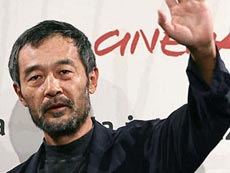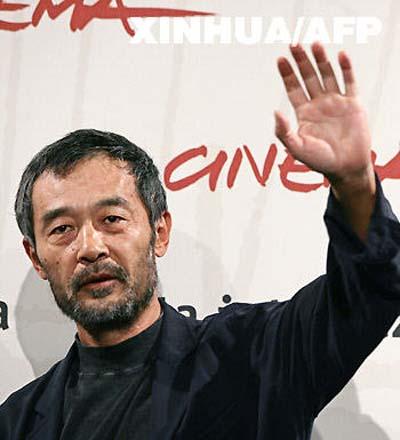| Videos | • Latest |
|
• Feature | • Sports | • Your Videos |
Film director Tian Zhuangzhuang
A father figure of contemporary Chinese cinema returns after a hiatus spanning nearly four years. "The Warrior and the Wolf" is the latest film by controversial avant-garde director, Tian Zhuangzhuang. Today we focus on the cinematic career of one of China's most celebrated veteran filmmakers.
"The Warrior and the Wolf" is the captivating adaptation of a short story by Japanese author, Inoue Yasushi.
It is one of the best-known stories by Yasushi, who made his name in Japan's contemporary literature for his trademark ancient Chinese history novels. "The Warrior and the Wolf" is set in the Qin Dynasty from 221 to 201 BC. The story is told from Qin's wolf-rampant north border, where a frontier warrior and a tribeswoman fall in love and are transformed into wolves.
Shooting began in Autumn 2008, in China's northwest Xinjiang Uygur Autonomous Region. As the debut commercial picture by Tian Zhuangzhuang, the film was screened at the Toronto International Film Festival in mid-September. Starring Japanese actor Odagiri Joe and Hong Kong model and actress Maggie Q, it is due for release on October the 2nd.
Tian Zhuangzhuang was born in 1952 to influential actor parents in China. His father, Tian Fang, made his name onscreen during the 1930s, before being appointed head of the Beijing Film Studio after 1949. His mother, Yu Lan, was an acclaimed actress whose film credits include "Sister Jiang" and "Revolutionary Family". She later ran the Beijing Children's Film Studio.
Following a short stint in the military, Tian Zhuangzhuang worked as an amateur photographer and then as an assistant cinematographer at the Beijing Agricultural Film Studio. In 1978, he was accepted to the Beijing Film Academy. He graduated in 1982, together with classmates Chen Kaige and Zhang Yimou. The class of 1982 collectively achieved fame as the so-called "the Fifth Generation Film Movement".
Tian's debut film "Our Corner" in 1980 was the first film made by the Fifth Generation directors. Upon his graduation in 1982, Tian was assigned to the Beijing Film Studio.

 0
0 








Comments